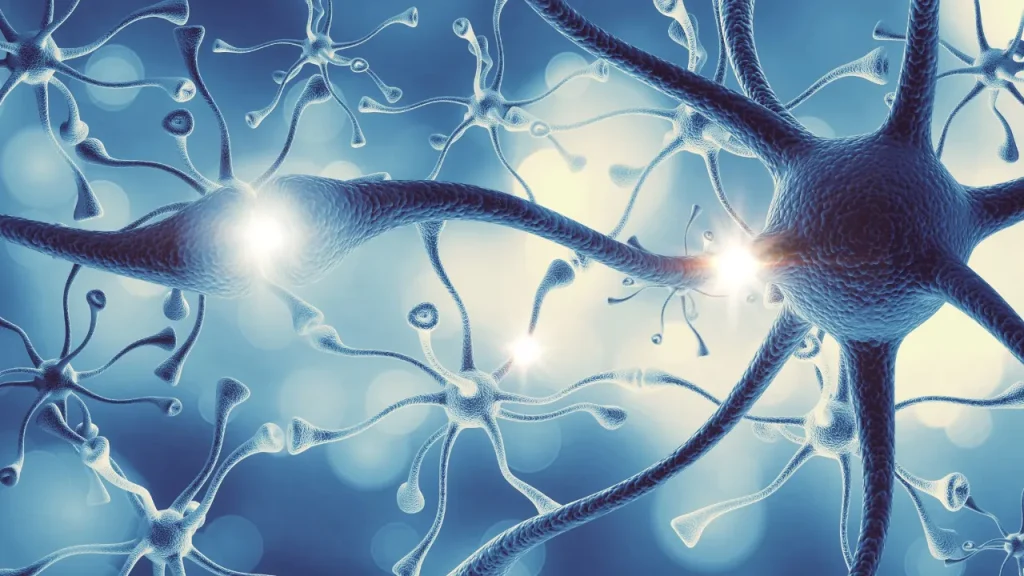Betel nut is a nut that people in Southeast Asia and the Pacific islands use a lot for medicinal reasons and just to eat as well. It is a natural stimulant that has been used for hundreds of years to help people concentrate, feel less tired, and relax. This article aims to explain what betel nut is, what it does for your health, what the best dose is, what side effects it might have, what other drugs it might interact with, and how you can use it safely.
You May Also Like:
The Best Supplements for Memory and Brain Fog: 5 Top Brands Reviewed
Finding the Best Supplements for Brain Fog After COVID: 5 Top Brands Reviewed
Betel Nut: Benefits, Dosage, Side Effects, Drug Interactions, And Other Important Information is an original (NootropicsPlanet) article.
The Nature of Betel Nut
Betel nut is the fruit of the areca catechu palm tree, which grows in warm areas of Southeast Asia and the Pacific islands. The nut is about the size of a hazelnut and has a color that is somewhere between red and brown. People often chew it with other things, like tobacco and lime, which gives the body an exciting effect.
Alkaloids, like arecoline, which boosts the nervous system, and theobromine, which makes you urinate more frequently, are what make betel nut work. The nut also has protective substances called polyphenols, such as catechin, epicatechin, and tannins.
Health Benefits of Betel Nut
Betel nut is good for your health in numerous ways. It is a stimulant, which can help you focus, feel less tired, and relax. Studies have also shown that betel nut can kill germs, reduce inflammation, and fight cancer.
In one study, it was found that betel nut oil has antimicrobial effects against staphylococcus aureus, escherichia coli, and pseudomonas aeruginosa. In another study, it was found that the polyphenols in betel nut extract help reduce inflammation by stopping the body from making inflammatory cytokines.
There are also signs that betel nut might help fight cancer. In a study that was released in the International Journal of Cancer, it was shown that betel nut extract stopped breast cancer cells from growing in the lab. But more study needs to be done to confirm these results.

Chemistry of Betel Nut
Betel nut is made up of a lot of different chemicals that work together to affect the body and brain. Alkaloids and polyphenols, which are found in the nut, have antimicrobial, anti-inflammatory, and maybe even anti-cancer properties.
Alkaloids:
Arecoline is the main alkaloid in betel nut. It is a cholinergic agonist that stimulates the parasympathetic nervous system and makes more acetylcholine. Arecoline has been shown to make people salivate more, move their intestines more, and make more mucus in their lungs.
Theobromine is another alkaloid found in betel nut. It is a weak diuretic that makes you urinate more often and keeps water from staying in your body. It has also been shown that theobromine increases the flow of blood to the brain, which makes it easier to think and feel better.
Polyphenols:
Polyphenols, such as catechin, epicatechin, and tannins, which have antioxidant properties, are also found in betel nut. Free radicals can cause toxic stress and inflammation in the body. These polyphenols have been shown to get rid of free radicals.
Also, the antioxidants in betel nut extract have been shown to stop the body from making cytokines that cause inflammation. This makes the body less inflamed.
Some Other Mixtures
Betel nut also has pharmacological effects because it includes numerous other chemicals, such as flavonoids and essential oils. The essential oils in betel nut have been shown to kill germs and reduce inflammation. The flavonoids in betel nut have been shown to fight cancer and act as antioxidants.
Overall, betel nut’s pharmacological effects, such as its stimulant properties and possible health benefits, are caused by its complicated mix of compounds. But it’s important to know that it could have negative affects and to only use it in small amounts.
Physiological Properties of Betel Nut
The way betel nut affects the body and brain is not fully known, but it is a complicated process. But tests have shown that the alkaloids and other chemicals in betel nut can have different effects on the body and brain.
The Sympathetic Nervous System
Some of the chemicals in betel nut, like arecoline and theobromine, can increase the activity of the sympathetic nervous system, which can cause the heart rate and blood pressure to go up. This stimulation can make it easier to concentrate and lessen tiredness, but it can also cause problems, like heart disease.
Dopamine Release
Arecoline has been shown to boost the release of dopamine in the striatum. The striatum is a part of the brain that is linked to pleasure and reward. Some people who eat betel nuts say that this effect makes them feel happy and euphoric.
Blood Needs to Get to the Brain
It has been shown that theobromine makes more blood flow to the brain, which makes thinking and feeling better. This action may be one reason why betel nut is good for your brain.

Optimal Dosage of Betel Nut
The best amount of betel nut to take depends on the person and how they are using it. Chewing betel nut with other things, like cigarettes or lime, can make it stronger and make it more likely that bad things will happen.
In general, you shouldn’t eat more than two or three betel nuts per day. It’s also important to know that the nut is addictive, and long-term use can lead to dependence and withdrawal symptoms.
Side Effects of Betel Nut
Betel nut can hurt the body in many ways, such as by causing mouth cancer, heart disease, and addiction. Chewing betel nut with tobacco and lime raises the chance of oral cancer because the three substances work together to make the mouth more likely to get cancer.
The use of betel nuts has also been linked to heart diseases like high blood pressure and coronary artery disease. The chemicals in betel nut can make the heart beat faster and raise blood pressure, which puts more stress on the heart and blood vessels.
Betel nut is also addictive, and using it for a long time can cause dependence and withdrawal signs like anxiety, irritability, and trouble sleeping.

Potential Substance Interactions with Betel Nut
Betel nut may combine with other things, like alcohol and medicines. The nut can make coffee work harder, which can raise your heart rate and blood pressure.
Beta-blockers and calcium channel blockers, which affect the heart and blood vessels, may also combine with betel nut. Before eating betel nut, you should talk to a doctor or nurse if you are taking any kind of medicine.
Best Responsible Uses of Betel Nut
Moderate and occasional use of betel nut is the most sensible way to use it. It is important to avoid chewing betel nut with tobacco and lime, as this increases the risk of bad effects, such as mouth cancer.
People with heart disease or high blood pressure should avoid betel nut because it can raise their heart rate and blood pressure more. Also, it’s important not to use betel nut for a long time because it can cause dependence and withdrawal signs.
It’s important to buy betel nut from a trusted source, since a nut that has been tampered with or is contaminated can increase the chance of bad effects. It is also best to eat betel nuts in their natural state, without adding anything else, to lower the chance of negative effects.
Betel Nut:
Conclusion
Overall, the way betel nut affects the body and brain is complicated and not completely known. Alkaloids and other chemicals in betel nut, on the other hand, have been shown to have several effects on the body and brain, such as making the sympathetic nervous system work more, releasing dopamine, and increasing blood flow to the brain. Always talk to your doctor before trying betel nut, since it can have so many side effects amd potential hazardous properties on the body.

References:
- Thayyil, J., Jayakumar, R., & Subramanian, S. (2017). Betel nut: a comprehensive review. Journal of Clinical and Diagnostic Research, 11(11), ZE01-ZE05. Retrieved from https://www.ncbi.nlm.nih.gov/pmc/articles/PMC5753425/
- Ahmed, S., Gul, S., Ahmed, S., & Naz, S. (2019). Phytochemistry and pharmacological properties of Areca catechu L. (betel nut): A review. Phytotherapy Research, 33(2), 263-282. Retrieved from https://onlinelibrary.wiley.com/doi/abs/10.1002/ptr.6236
Important Note: The information contained in this article is for general informational purposes only, and should not be construed as health or medical advice, nor is it intended to diagnose, prevent, treat, or cure any disease or health condition. Before embarking on any diet, fitness regimen, or program of nutritional supplementation, it is advisable to consult your healthcare professional in order to determine its safety and probable efficacy in terms of your individual state of health.
Regarding Nutritional Supplements Or Other Non-Prescription Health Products: If any nutritional supplements or other non-prescription health products are mentioned in the foregoing article, any claims or statements made about them have not been evaluated by the U.S. Food and Drug Administration, and such nutritional supplements or other health products are not intended to diagnose, treat, cure, or prevent any disease.


